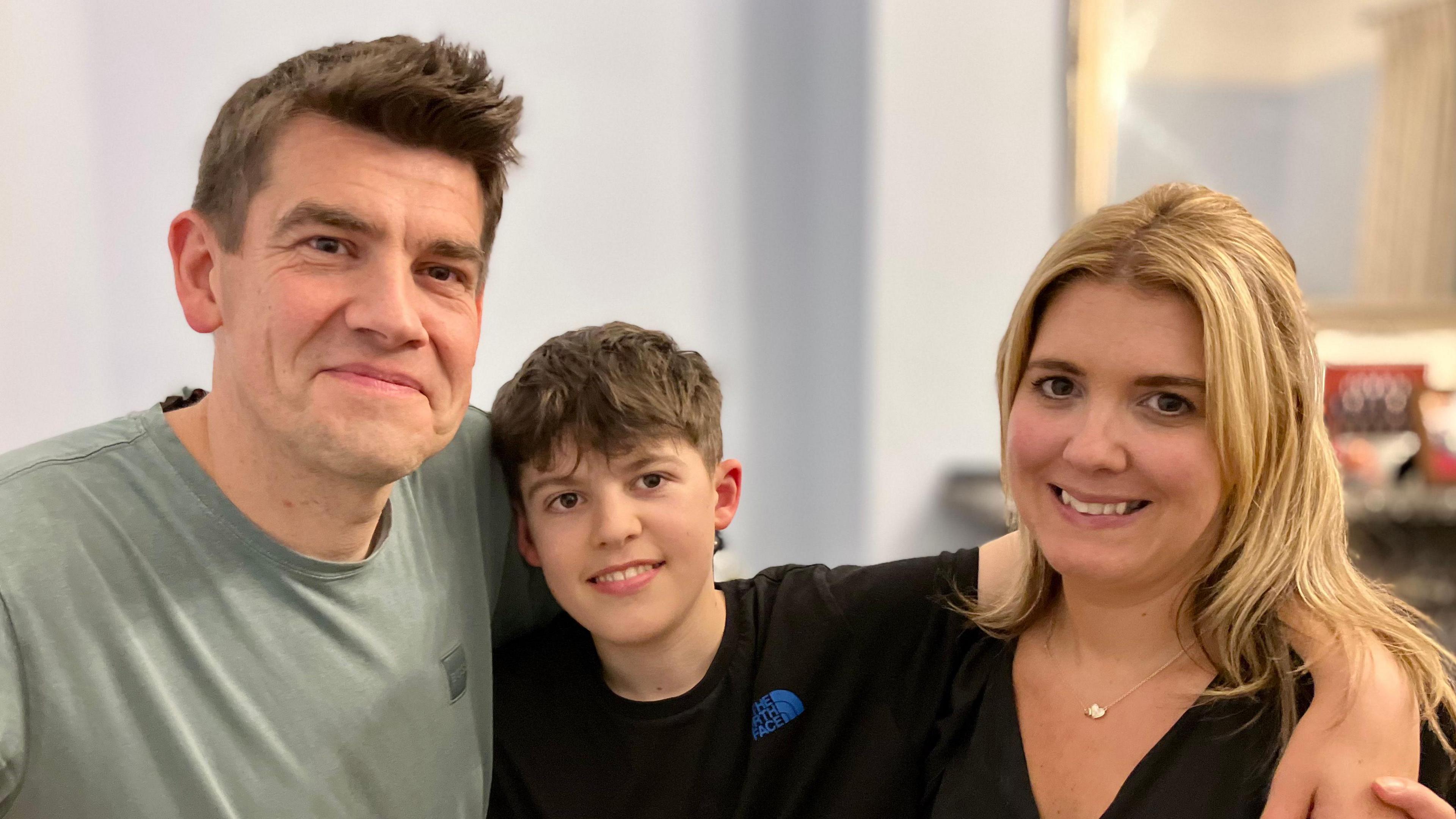Man flies across world in bid to save sister's life
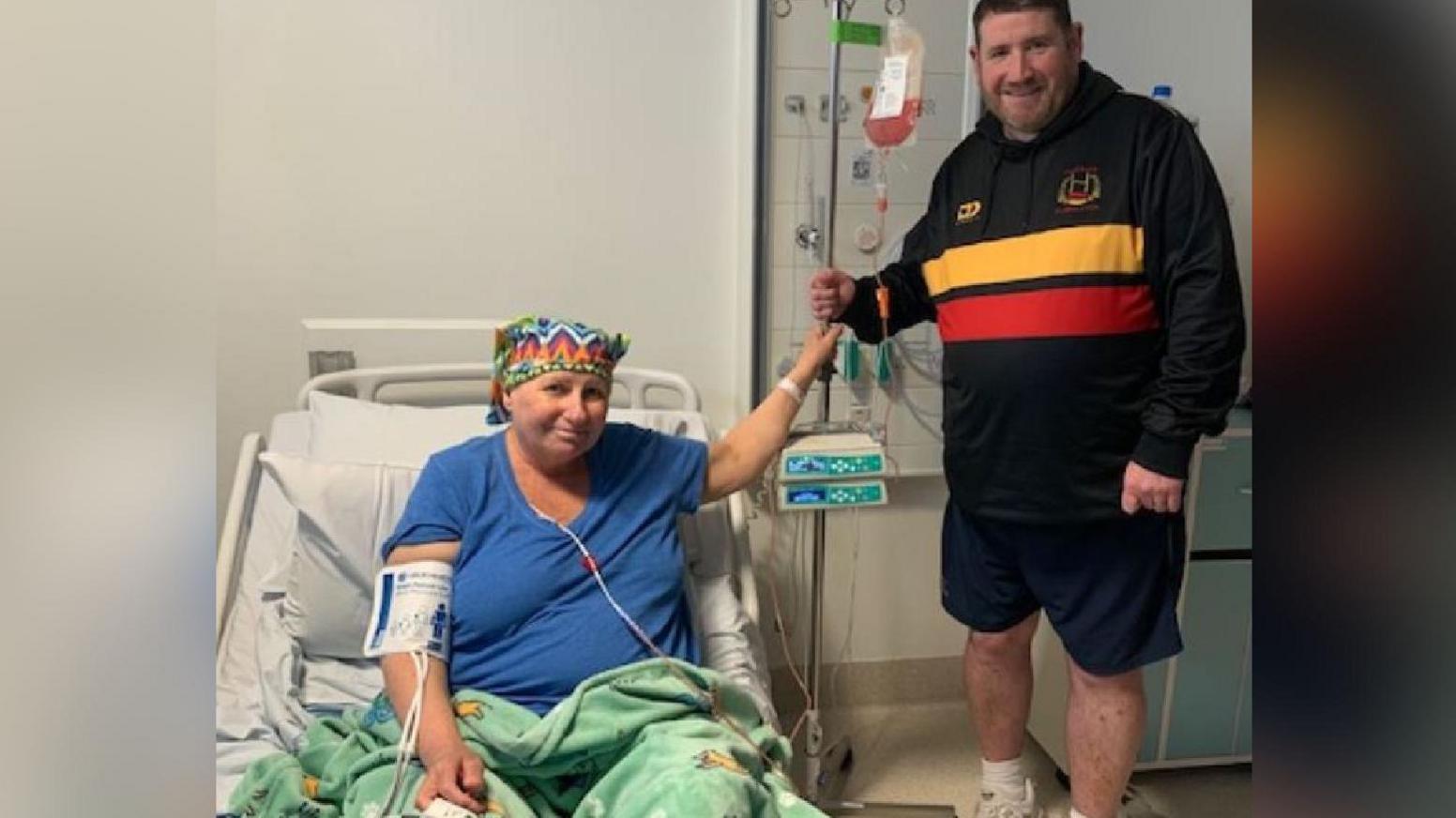
Jenny Gwilliam has been undergoing treatment for acute myeloid leukaemia
- Published
A man has flown across the world to donate his stem cells to his sister, who was diagnosed with a rare blood cancer.
Colin Gwilliam flew 11,500 miles (18,400km) from his home in Wellington, New Zealand, to Yorkshire, where his sister Jenny Gwilliam has been undergoing treatment.
Ms Gwilliam, from Malton, North Yorkshire, urgently needed a stem cell transplant and was given two years to live without the procedure.
Her younger brother turned out to be a perfect match and she said: "What better gift could somebody give you than the gift of life? I'll be forever grateful."
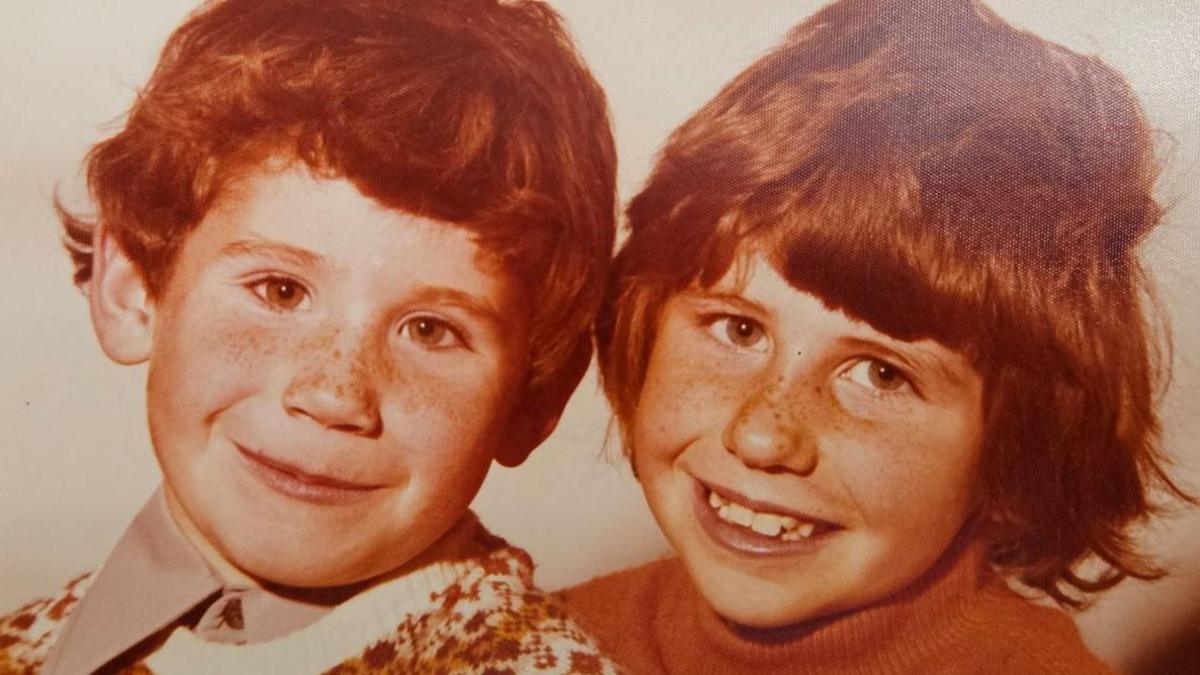
Siblings Colin and Jenny Gwilliam said they had always been close
Ms Gwilliam, 57, was diagnosed with cancer in 2006, but in April it developed into acute myeloid leukaemia.
She said her "life was upended" when she found out about her diagnosis and she urgently needed a stem cell transplant.
"I had no symptoms at all and suddenly I was being told I had two options – palliative care, with which I could expect another one or two years of life, or intensive chemotherapy and a stem cell transplant," she said.
"Colin told me to try every option, so with his support, I did."
Siblings have a 25% chance of being a match for donation.
Her brother donated blood samples, which were flown across the world and found to be "perfect".
"When I found out that he had been accepted by the transplant donor team, it felt like a gift," Ms Gwilliam said.
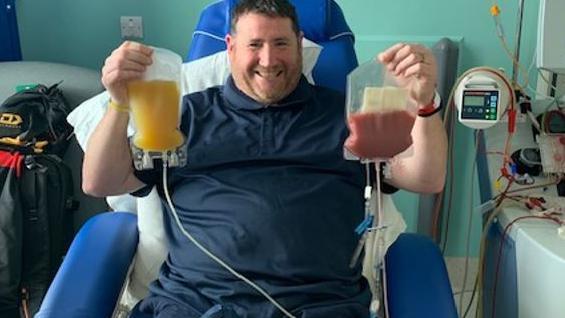
Colin Gwilliam spent five hours donating stem cells to help with his sister's treatment
Mr Gwilliam, 56, arranged to travel to the NHS Blood and Transplant's Therapeutic Apheresis Services (TAS) in Leeds, where he spent five hours donating his stem cells.
It then took 22 minutes for them to be transplanted into his sister's bloodstream.
"Flying across the world to potentially save my sister's life was a no-brainer," Mr Gwilliam said.
"I would have done anything I could. Going back to the UK and spending a few hours donating my stem cells felt easy, compared to everything that she has been going through."
Mr Gwilliam said he and his sister had always been close, but going through the process together had made them "even closer".
"I feel incredibly lucky to have been able to help my big sister in this way and would do it all over again," he said.
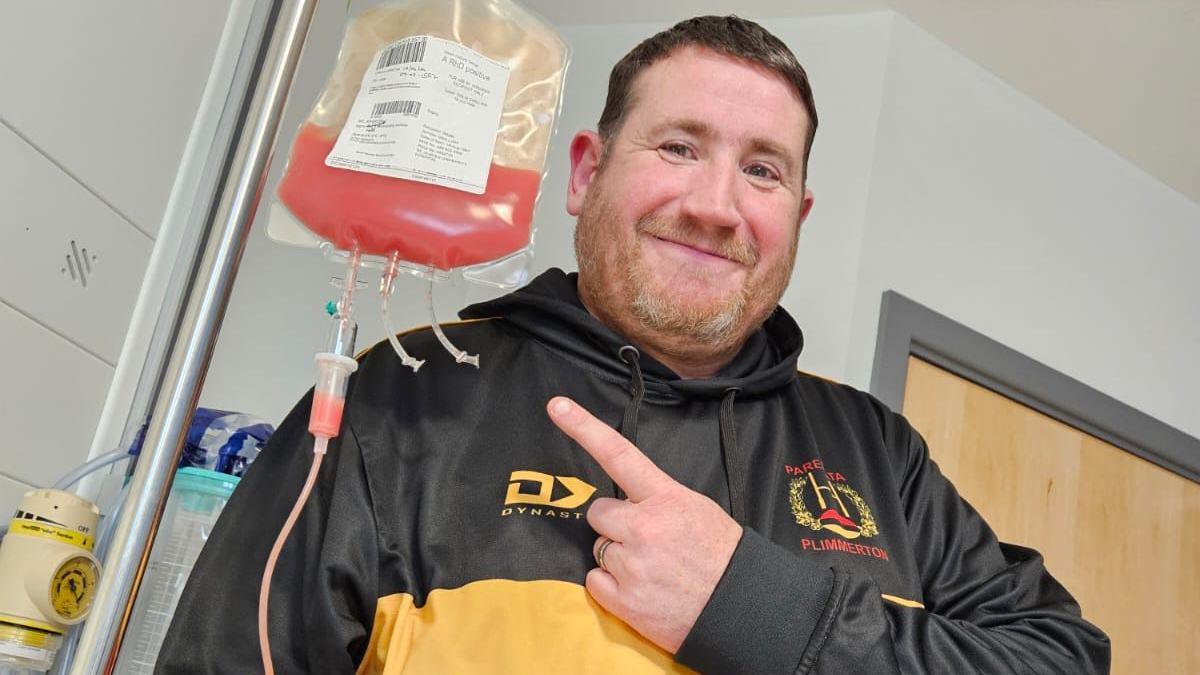
Colin was able to sit with his sister while his stem cells were transplanted into her bloodstream
It will take up to 12 months for medics to know if the transplant has worked.
Ms Gwilliam said: "I'm coming out of the end of my first six months post-transplant and looking towards being able to live my life a little more normally as my immune system improves."
Charlotte Blacklock-Lumb, lead nurse at the TAS, said it was "fantastic" to hear that Ms Gwilliam was doing well.
"I want to wish them both all the best for the future," she said.
Listen to highlights from North Yorkshire on BBC Sounds, catch up with the latest episode of Look North or tell us a story you think we should be covering here, external.
More stories like this
- Published14 December 2024
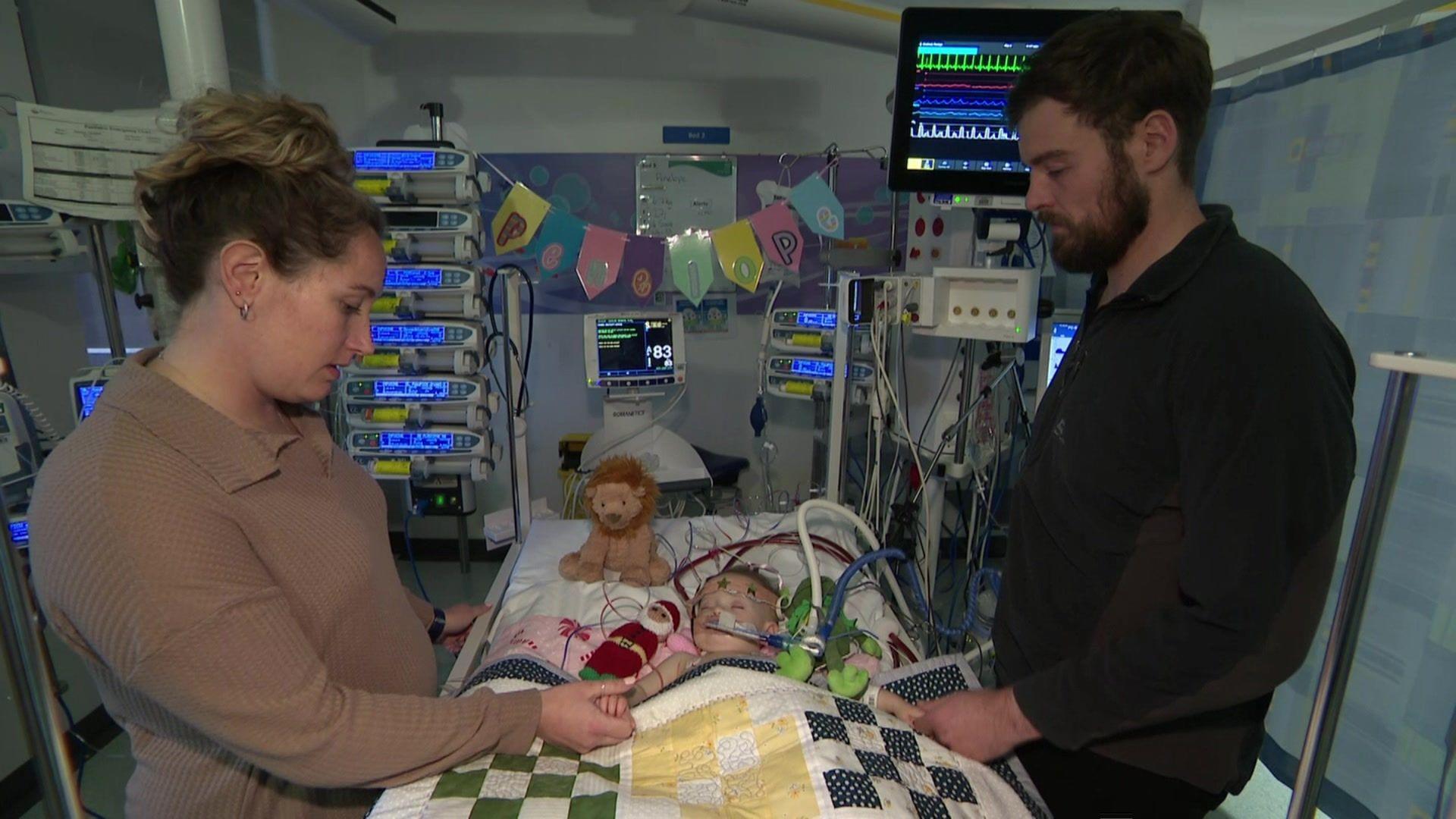
- Published18 September 2024
